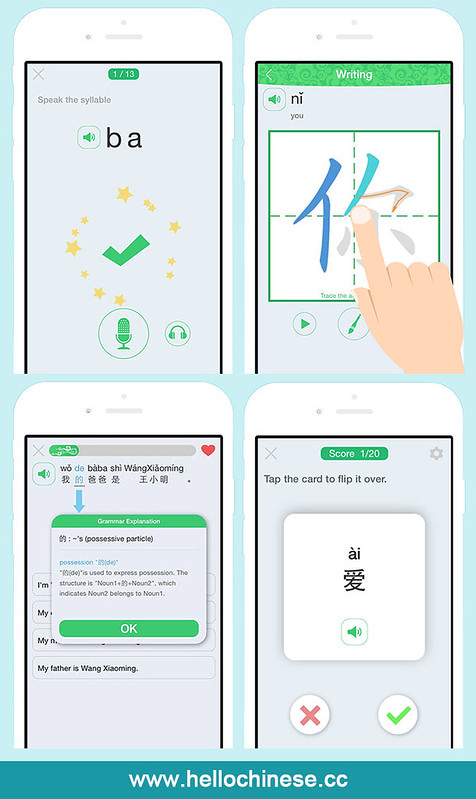Who’s using HelloChinese?
My friend and former co-worker from ChinesePod, Vera, is working at a new app-focused startup in Beijing. The app is called HelloChinese, and it is heavily inspired by Duolingo. The first Chinese learning app to do its own version of Duolingo for Chinese was ChineseSkill, and now that app has got competition. (Meanwhile, Duolingo is taking its sweet time coming out with a Chinese course.)
I’m preparing to start re-examining all the best apps out there for learning Chinese and do an update to my 2011 post on apps for Chinese study. I’d also like to do a post directly comparing HelloChinese and ChineseSkill, but I thought I’d ask my readers what they thought first. Also, if you’re willing to share your own experience with the two apps as input for the upcoming blog post, please do get in touch!
If you haven’t heard of or tried the HelloChinese app yet, obviously it’s not too late. It’s free, and available for both iOS and Android.


Just curious here… has anyone actually gotten proficient (i.e. able to hold a normal conversation or read simple stories) through Duolingo? I tried it myself for a short time before abandoning it when I realized it was making me spend more time on output (typing) than on input (reading/listening). I had a few acquaintances who put in hours daily for a year without getting too far.
It’s great how all of the gamification can motivate people who wouldn’t otherwise study a language. On the other hand, if you don’t get a good return on your time it’s more expensive than any paid app, in a sense. Can anyone share a Duolingo success story?
Are you surprised?
I think Duolingo is a great app, but it only should be part of a language learning process, and not the only used resource.
I’m not surprised. I don’t really think Duolingo is a good use of time (even as a supplementary resource), but I’m also trying to be open minded and see if others have had much better results with it.
I think Duolingo (and other language learning software products) have a place in vocabulary acquisition and practice.
Most of them (Rosetta, duolingo) are basically Spaced Repetition Systems with some extra bells and whistles. The staggered introduction of vocab matched with SRS can help to reinforce basic vocab.
However, the mistake a lot of people seem to make is making use of Duolingo 100% of their study time to the detriment of far more efficient methods. Faith in an app/technology can lead to not bothering to go and talk to real people in Chinese. Unfortunately there is then a nasty shock when the student talks to a native speaker for the first time!
It’s a little like revising for a test by highlighting a textbook. It FEELS like you are learning something. You end up with a nicely highlighted textbook and maybe some pretty notes, feeling confident in your ability to take the test.
Come test day though and you under-perform. The busy work of highlighting 300 pages of a textbook does nothing to help retention of the facts and only serves to instill false confidence.
The real problem here (with both using a gamified language learning app and the textbook-hightlighting-test-revision methodology) is that the wrong skill is being practiced.
Come game day and all those hours of “practice” are not relevant. This leads to a crippling blow to one’s self-confidence. The result? Giving up Chinese and joining the ranks of people who declare that “Chinese is too hard”.
I have become quite fluent by using this app. this app show you how to construct a sentence. I think that is the main thing about this app. and I love it
I’ve actually been planning a post on the same topic, ChineseSkill and HelloChinese. I’ll be waiting for your take on it as well.